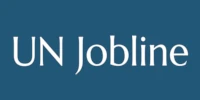RITD/ATPC – E-Commerce consultant to support the development of a regional policy on e-commerce for Central Africa – current NGO vacancy in Ethiopia
Addis Ababa, Ethiopia
JOB DETAIL
Result of Service
1: Undertake a scoping study, inclusive of the situational analysis and detailed outline, to inform the preparation of the inclusive regional policy for e-commerce in Central Africa. Feedback will be provided by ECCAS and ECA (ATPC and SRO-CA), and will need to be incorporated by the consultant. 2: Organize a virtual stakeholder consultative meeting with representatives from governments and private sector actors of ECCAS member States to present the scoping study and ascertain priorities actions and other required component of the regional policy’s Action Plan. 3. Carry out additional interviews with relevant stakeholders (including from government, private sector, civil society and development partners). ECCAS will assist the Consultant in identifying national level focal points for the purpose of such interviews and consultations. 3: Draft the full-fledged regional policy on e-commerce for Central Africa, inclusive of feedback received by stakeholders from the virtual consultative meeting and subsequent interviews. Submit to ECCAS and ECA (ATPC and SRO-CA) for review and incorporate comments received. 4: Organize validation meeting to be attended by key relevant stakeholders, and finalize the inclusive policy based on the feedback received from the meeting.
Work Location
Libreville, Gabon
Expected duration
6 months
Duties and Responsibilities
The African Trade Policy Centre (ATPC), through the Regional Integration & Trade Division, is a specialized unit within the United Nations Economic Commission for Africa (ECA). Its mission is to act as the leading Africa-based Centre of excellence and a continental hub for providing and coordinating technical support for the development of trade policies in Africa. The ATPC is implementing a project to build capacity of both the public and private sector stakeholders in African countries to better use preferential trade agreements and arrangements to reach their development aspirations. The overall objective of the project is to contribute to the enhancement of intra-African trade and the share of Africa in global trade through inclusive, sustainable and development-friendly trade reforms. In the first phase of the project a series of research papers were developed. These papers gathered primary survey and interview data virtually in 2020 and were designed to provide new answers to some of the critical challenges to how African traders use preferential trading regimes in Africa. In the second phase of this project, the content of these papers was incorporated into the development of capacity building short courses. The third phase of this project aims to provide technical assistance at the request of specific countries or regional economic communities to translate research and capacity building into policy action.
Qualifications/special skills
Master’s degree in Economics, Business, International Trade, International Relations, International Law and/or related areas is required. “Experience: A minimum of seven (7) years of professional experience working in the areas of trade/trade law and e-commerce or related area, is required. Demonstrated skills in high level research, analysis, and professional writing, supported with evidence of published work, are essential. Experience working on development-related issues in the African context, ideally with a focus on Central Africa, particularly on trade and e-commerce, is desirable.”
Languages
Knowledge of French
Additional Information
Not available.
No Fee
THE UNITED NATIONS DOES NOT CHARGE A FEE AT ANY STAGE OF THE RECRUITMENT PROCESS (APPLICATION, INTERVIEW MEETING, PROCESSING, OR TRAINING). THE UNITED NATIONS DOES NOT CONCERN ITSELF WITH INFORMATION ON APPLICANTS’ BANK ACCOUNTS.
